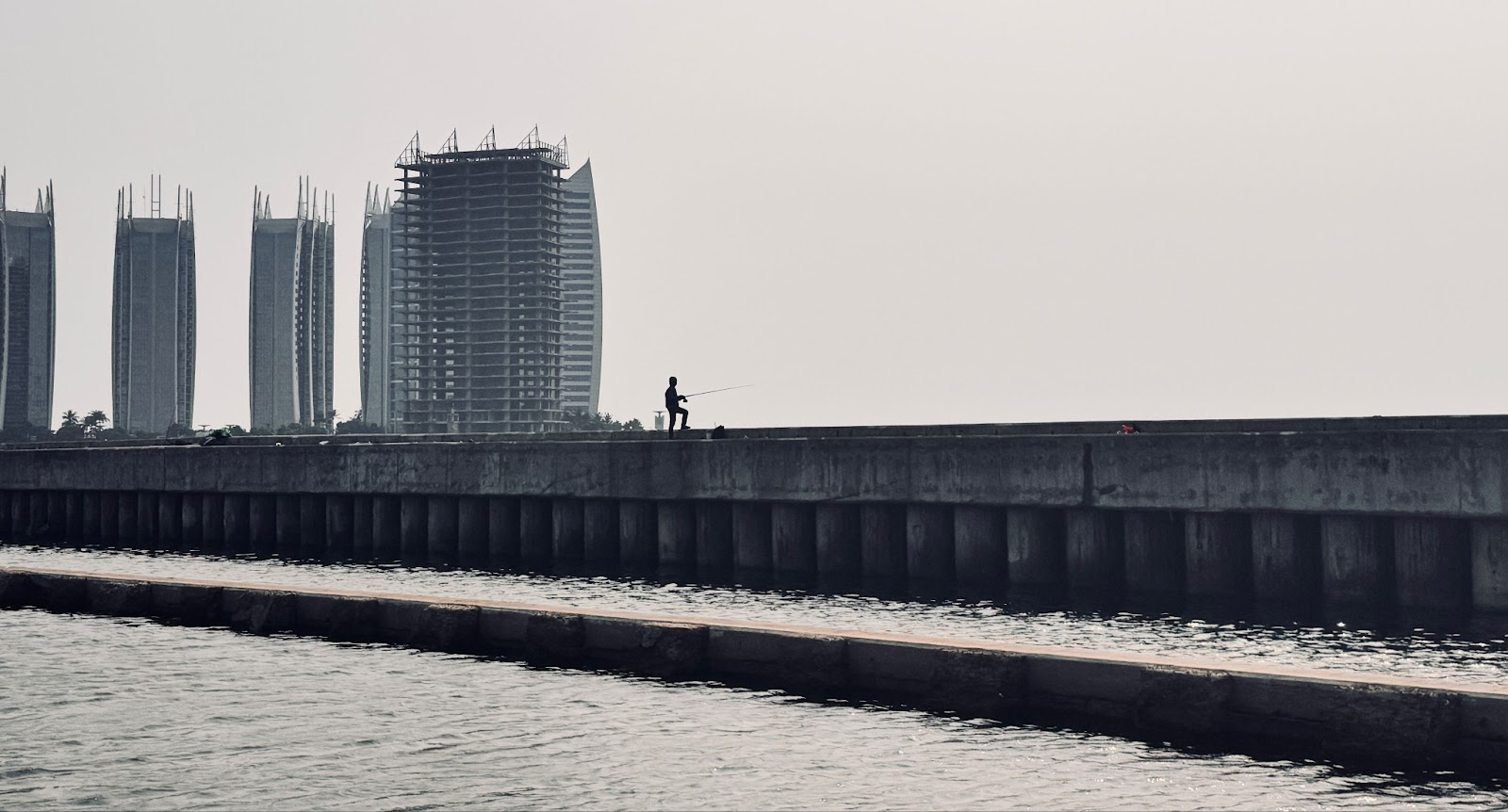Across the road from the Catholic cathedral, built during the Dutch colonial period in the early 20th century, Jakarta built the world's third largest mosque, Istiqlal, meaning “independence,” with a dome 45 meters in diameter in honor of 1945, the year it was proclaimed. So they stand side by side, clearly demonstrating the religious tolerance of the Indonesian capital, connected underground by a 38-meter “tunnel of friendship.”
The street tells a slightly different story. Orientalist Anton Galushka-Adaykin says that when he first came here to study twenty years ago, only about one in ten women wore a headscarf in accordance with Muslim tradition. Now, as we all notice, one in ten women in the capital wears a full niqab, a black, closed garment. And eight out of ten wear headscarves. I walk around in knee-length shorts and a short-sleeved T-shirt and still don't get too many critical looks, as was the case, for example, in the Emirates — but the trend is obvious. Indonesia is becoming increasingly islamized, and every year it reacts more painfully to the word “West.”
Islam penetrated Indonesia in the 13th century along with Muslim merchants, but it took root in the archipelago in a rather peculiar form, intertwined with local beliefs. For example, the holy month of Ramadan is often accompanied by local rituals with elements of animism or Hinduism — such as rituals for a good harvest or cleansing the land of evil spirits with dances and music, which are not characteristic of more strict forms of Islam. Therefore, although Indonesia remains the largest Muslim country in the world (although India, given its population growth, risks overtaking it in the near future), Salafi movements call local Islam impure. At the same time, the size of the Indonesian ummah forces many Arab Muslims to recognize its importance and influence. And to work with it: for example, by providing local students with regular scholarships to study in Saudi Arabia, Egypt, or Jordan — for many poor children, this is virtually the only opportunity to get ahead in life. Arab money also goes to finance the construction of madrasas and Islamic research centers that promote more conservative forms of Islam. Preachers make their way onto social media, and from time to time they come in person to give lectures and seminars. This significantly contributes to the growth of anti-Western and anti-American sentiment in society.
One of the few Indonesian analysts dealing with the topic of the Ukrainian-Russian war, Radityo Dharmaputra, believes that it is this sentiment that causes many Indonesians, while remaining neutral in words, to emotionally support Russia, which (at least as it appears to locals) stands up for Palestine in the Middle East conflict. In addition, Russia presents itself as a country with a large Muslim presence (and tolerance towards it). Some Indonesians compare Putin to their own father of the nation, Sukarno, who opposed the West in the 1950s and 1960s. After the start of the full-scale invasion of Ukraine, pro-Russian Indonesian bloggers flooded social media with threads justifying the aggression: Ukraine, for example, was called a vassal state of America, or the war was compared to a quarrel between divorced spouses, where the rich ex-wife (Ukraine) was left with children whom she neglects, hanging out with gangsters.
Indonesians see images on television: a large mosque in Moscow, the Eid al-Adha holiday, and have no idea, for example, about the genocide of the Circassians or the deportation of the Crimean Tatars. Stories about this may reduce the number of local Russian sympathizers, but it will be necessary to break through the powerful and stable work of Russian propaganda. The Russian Federation can afford, just as Arab countries do, to set up cultural centers and bring guests to Moscow. Ukraine needs to look for local influential voices who want to talk about Ukraine. However, appealing to the Muslim community is an extremely delicate issue, especially at a time when we are being asked to take a clear position on the Gaza Strip, and most Ukrainians are tired of such identification in conversations with Western fighters for global justice, most of whom are unable to locate Gaza on a world map.
